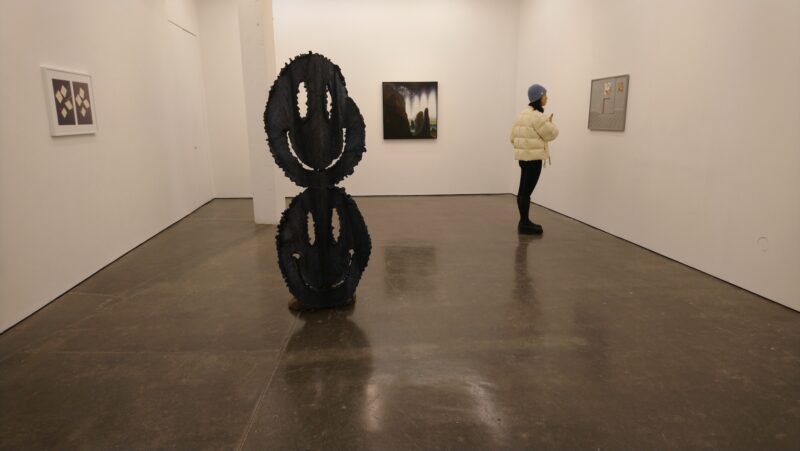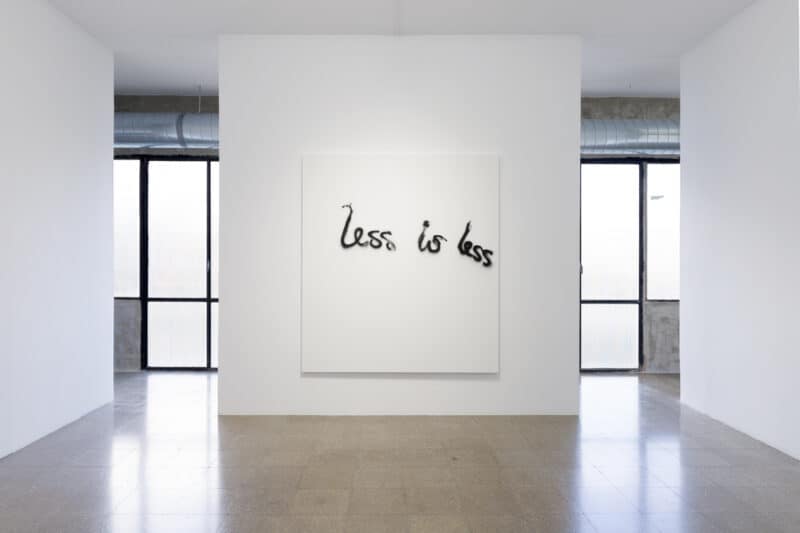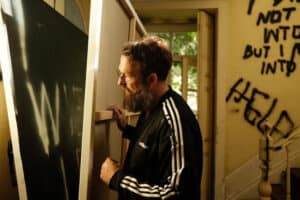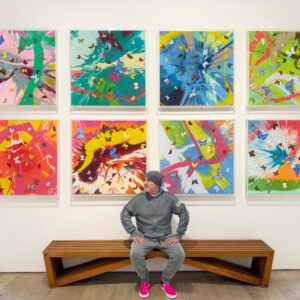Richie Culver is responsible for some of the most quietly devastating music of recent years
FACT magazine
“I wanted to make a love album of sorts,” says artist Richie Culver of his third LP, Hostile Environments, set for self-release on 14th June. “Or at least my interpretation of one, a trapped album.” Serving as a solo chaser to his second album Scream If You Don’t Exist, an ambitious and uncompromising statement which placed Culver next to some of the most important lyricists of our moment, including Moor Mother and Billy Woods, Hostile Environments arrives as a self-produced, self-written, self-released counterpoint.
“I wanted to do a no-thrills LP,” he explains. “No collabs, no remixes, just a record from the heart.” Caught in this contrast, on this love album, which is also a trapped album, Culver nds new clarity in his utterance by diusing his sound through uneasy ambience, paranoid noise and anxious loops, finding a new, dreamlike space within which to explore old angst, an alternate reality in which he was never able to escape the constraints of his past.
Finding endless inspiration in the emotional generosity of Tracy Chapman’s ‘Fast Car’, a song that has been with Culver since his most formative years, the artist imagines the very real possibility of not being able to leave tonight and what it might mean to live and die this way, to never leave your hometown. It’s from this mode of bleak speculation that Hostile Environments’ centerpiece, ‘Slow Car’ emerges, itself adapted from a painting of Culver’s that reads: ‘Imagine listening to Tracy Chapman Fast Car, in your slow car, in your small town, that you never did leave.’ Spoken through a cold ebb of synthesis, Culver’s voice alternately shrouded in reverb and snatched by pitch-shifted repetition, the track evokes the quiet dread of stasis, an empathetic ode to those trapped by ordinary, hopeless circumstance.
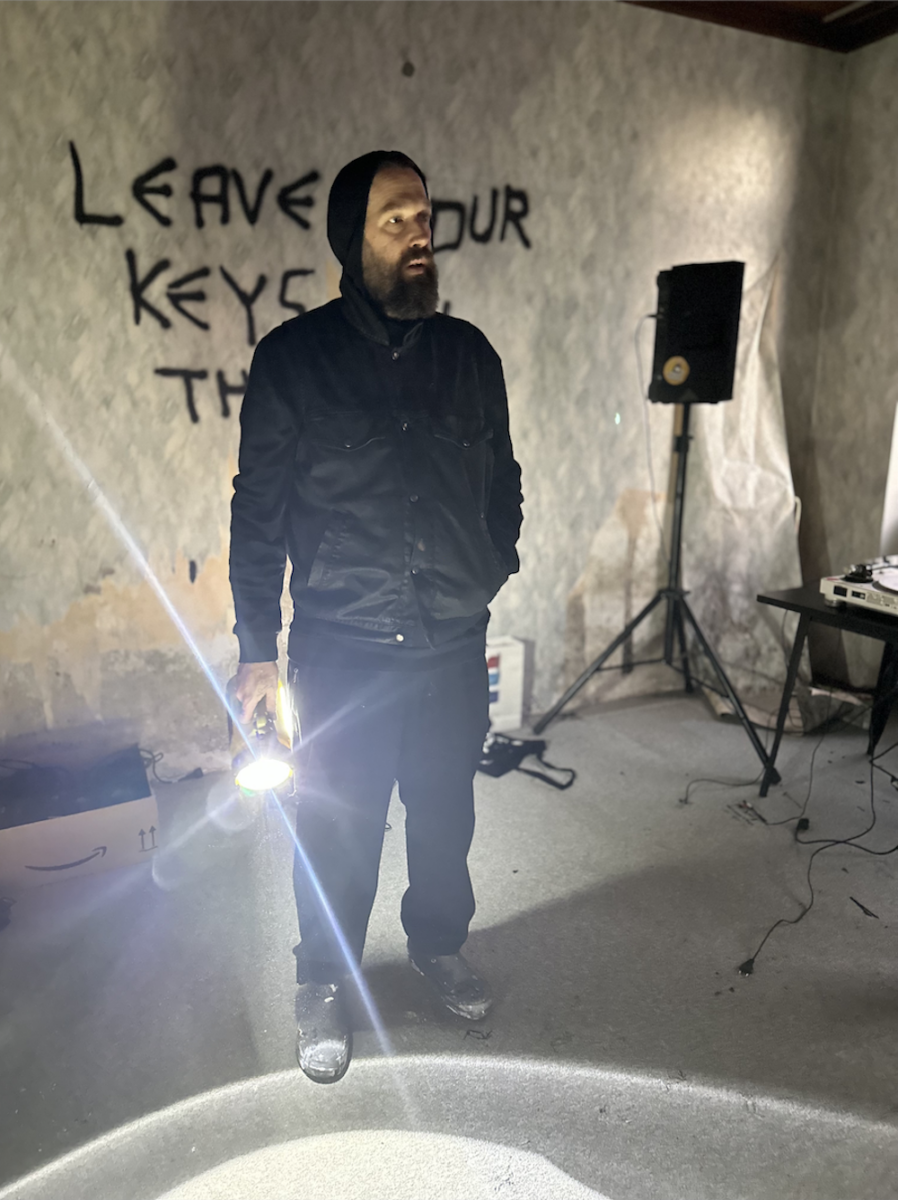
So this is an album about Love – is it romantic?
It’s romantic in the sense of giving in to a reality you are trying to escape. Surrendering to win kinda thing. It’s definitely the most romantic work I’ve done this far. I think production-wise the record lends itself to a warm kind of feel where as most of my previous recordings have been cold and damp releases made for Autumn/ Winter.
You are releasing it yourself does that give you more freedom?
Not really. Most of the labels I Am affiliated with are super chilled. Drowned by locals and Industrial Coast to name a couple. I was releasing under Participant records also but we have put that on hold for a while. This record I made fairly quickly and I just wanted to get it out. It’s coming out as a Boomkat exclusive.
In your visual art words are what it’s all about in your music is it sound?
I guess it’s the same to an extent. Trying to make it all fit under one umbrella is the tricky part. Sometimes I feel there’s too many words. Drowning in language. But language is important in both of my practices. More so in my music.
Why do you think a black woman from Ohio wrote & sang a song that connected with you so powerfully?
It’s just music in its most basic yet powerful form connecting. It’s the lyrics. As a young child listening and relating. As an adult now still hitting me the same way although now it’s about not turning out like the Dad in the song that Tracy sings about.
Are you proud to be from Hull? And do you consider yourself to be lucky?
Yes
This sounds like a very personal project is it hard to be so open?
I’m in recovery for like 15 years so being open is second nature. Speaking to rooms of relative strangers about extremely personal things.
When you paint do you have a favourite album you listen to?
I listen to Noise usually. Recently Vomir and Climax Denial. It opens different pathways for me regarding painting. Sometimes silence works best. Radio also is a go to for me. A way of feeling connected to the City or local Harlesden radio station – The Beat.
Is the grass always greener? Or is it better the devil you know?
The grass usually is much greener if you have some money – also the goalposts always move. Once you reach one certain goal it’s soon onto another thing – Like that one I just reached was never that important. I think that’s fairly normal though in the quest for whatever we are all looking for in our various creative fields.
It’s clear that Culver is still trapped by the Hostile Environments of the album’s title, even within the space of this tful dream. “It was far more dicult this time,” he intones over melancholy churn on ‘Dicult’, evoking images of “cobwebs in an empty hall” and “broken door frames,” channeling a deep anxiety that seeps into the bones of the record. In the unsettled swirl of ‘Dust,’ Culver wrings the creeping machine pulse of his Quiet Husband alter-ego into uneasy hum and paranoid loops, as though staving o an anxiety attack with a desperate mantra. The unsettling album closer, ‘Changed My Style,’ buets muttered memories of bad decisions with eerie groans and shredded static, a claustrophobic, slow spiral into resentment and regret.
Yet, though we may be trapped in here with Culver, this remains an album about love. On ‘Bedsit’, we hear the artist’s voice through the haze of half-remembered feelings, echoed in intimate whisper, a “broken heart on the oor” a love lived and lost, reeling back through grainy snippets of joy and strife like an old VHS tape. ‘Here We Go’ treats the anxiety of loss, of both time and people, with a disgured vocal sample, looping into familiarity, a gentle blood-letting that sees Culver putting words to nagging worries. The tumbling chimes of ‘Bells Of Hope’ spell an ethereal sequence of renewal, the artist’s voice given rest in a restless soundscape that swears o the stasis in which he fears he will be trapped.
It’s in this way that ‘Slow Car’ can be both an exploration of dread and a treatise of empathy, the same empathy that Tracy Chapman extends in her stark evocation of what it’s like to struggle and what it means to make music from said struggle. Richie Culver comes from a similar place, experiences viscerally palpable in the raw emotion of his delivery. Hostile Environments might provide space for the artist’s bad dreams of what might have happened if he was never able to leave, but it also demonstrates intimate understanding of those that stay.
MORE: HERE

